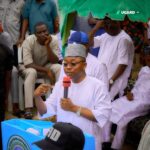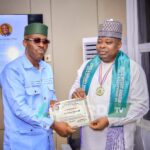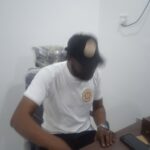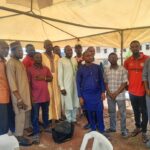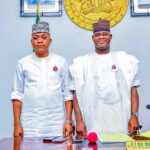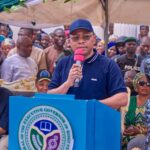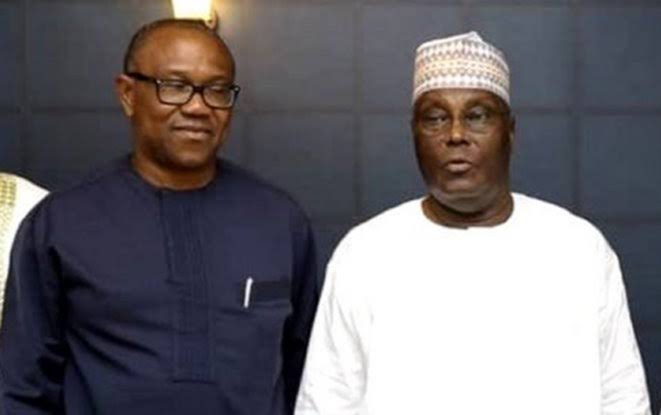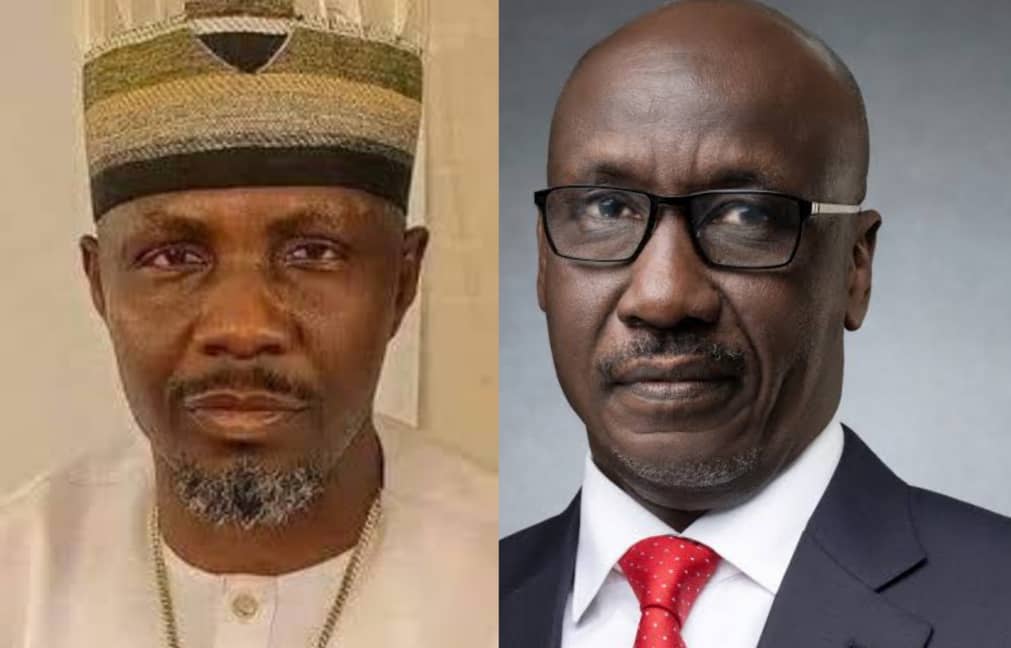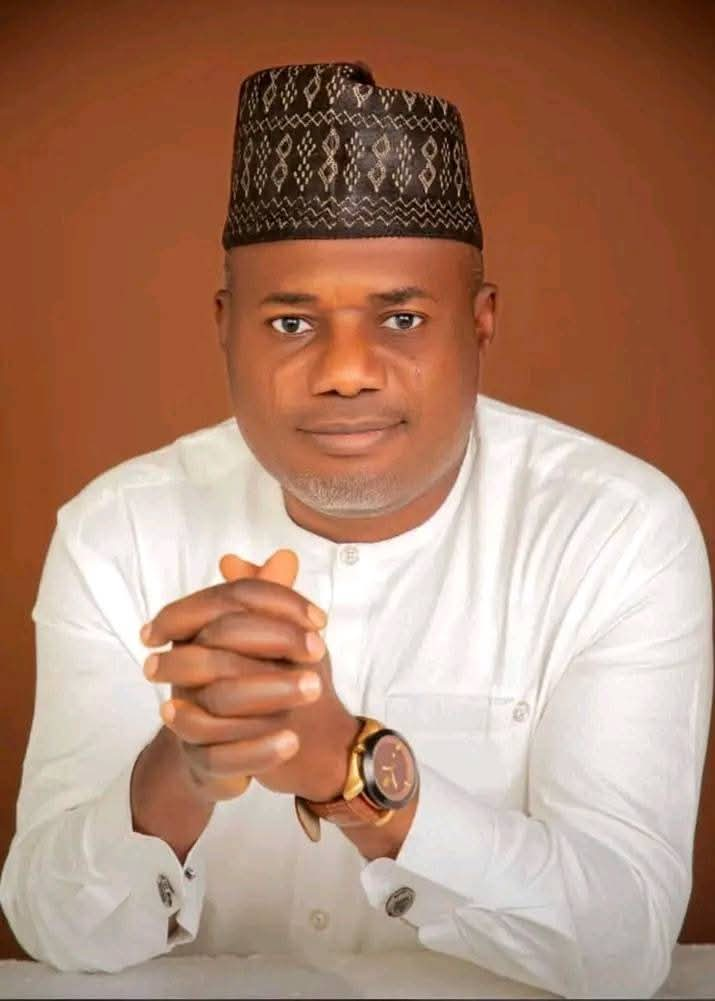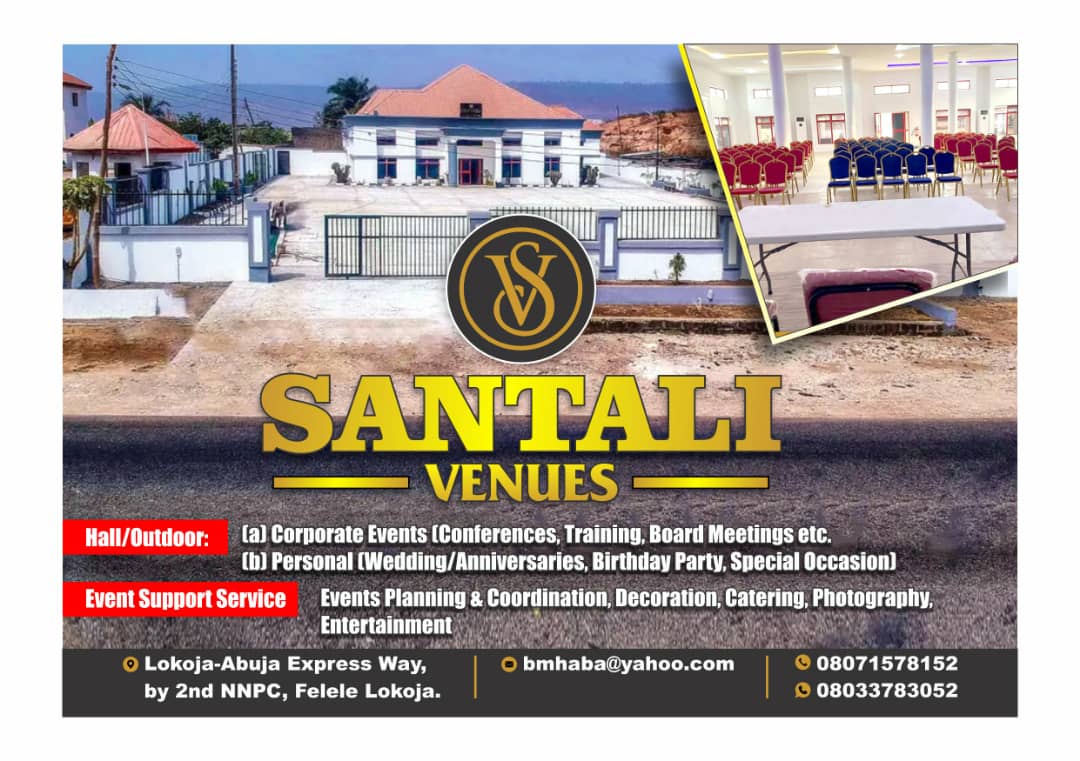
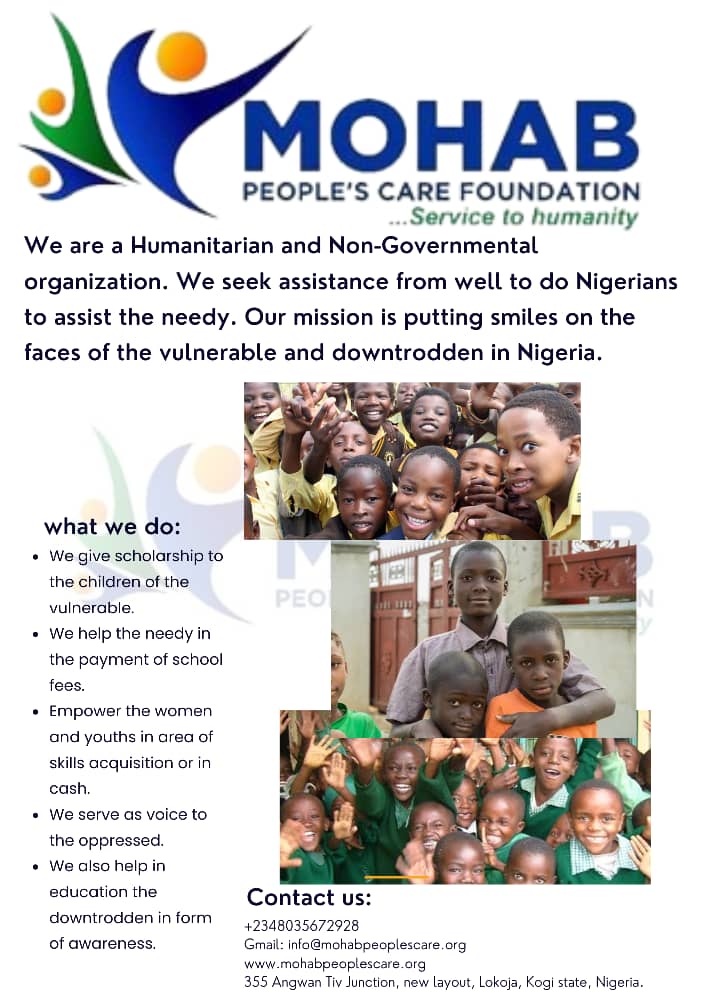
By OBINNA EZUGWU
Since the end of Nigerian civil war in 1970, a select team of now retired military generals, namely, General Ibrahim Babangida, Chief Olusegun Obasanjo, General T.Y. Danjuma, General Aliyu Gusau, General Abdulsalami Abubakar, among few others, have been influential in deciding who becomes the country’s president.
But ahead of 2023, their camp has evidently been split between Peter Obi, presidential candidate of the Labour Party, and Atiku Abubakar, his People’s Democratic Party (PDP) counterpart, what represents a major development in the polity.
Hitherto united by the common desire to keep their grip on the country, and to ensure that the country, whose unity they fought to preserve continues to exist on their terms, the generals have always found common ground in deciding who to back to take power, and more often than not, they had always succeeded in their quest.
In 1979, their decision to back Shehu Shagari was instrumental to his emergence as president, ahead of Obafemi Awolowo and Nnamdi Azikiwe.
Again, in the aftermath of the deaths of MKO Abiola and Sani Abacha in 1998, and following from the June 12, 1993 debacle, the survival of the country was reasonable threatened, with the Yoruba whose son was denied his mandate, becoming uncontrollably agitated, the generals decided that a Yoruba man, specifically Obasanjo, one of their own, should be president. And in 1999, Obasanjo, running on the platform of People’s Democratic Party (PDP), defeated his main challenger, Chief Olu Falae, then of the defunct Alliance for Democracy (AD).
Obasanjo would subsequently, in 2007, hand over power to Umaru Musa Yar’Adua, brother to his friend, Shehu, but Yar’Adua died three years later in 2010, and was consequently succeeded by Goodluck Jonathan, then vice president.
The generals supported Jonathan’s ascendancy to presidency in 2010, and reluctantly backed his power bid in 2011.
But in 2015, they turned their back on Jonathan, with Obasanjo famously tearing his PDP membership card, and openly declaring his support for President Muhammadu Buhari, then candidate of the All Progressives Congress (APC).
The decision to shun Jonathan may have largely been informed by the desire to return power to the North, but there was also the growing insurgency in the Northeast, and they must have concluded that Buhari would be better equipped to rein in the terrorists.
Buhari, of course, emerged president in 2015. But would also fail to tackle insecurity, which indeed, escalated beyond the Northeast, and by 2019, the generals were unanimous in their support for Atiku, then PDP candidate. Indeed, even Obasanjo, who had a bitter relationship with his former number two, forgave him ahead of the 2019 polls and openly backed his power bid.
But in the event, Buhari deployed the power of incumbency to retain the presidential seat, making 2019 the only year the generals failed to influence the emergence of a president in an election. Regardless, they remained united.
However, ahead of another election in 2023, the aspiration of Mr. Obi, a would be political outsider, who has built massive support base among young Nigerians and indeed the elderly yearning for a new order, has taken the country’s power contest to an uncharted waters, and even the hitherto compact camp of ex-generals has not been spared.
Among other retired generals, Obasanjo has been at the forefront promoting the candidacy of Obi, who is also understood to have the backing of Danjuma, among other Christian ex-generals mostly from the Middle Belt. But the likes of Gusau, Babangida and Abdulsalami, who are Muslim northerners, are said to have insisted on Atiku, in a major split in their camp, which is also emblematic of the widening religious gulf in the country, particularly under President Muhammadu Buhari.
Danjuma, who is from Taraba State, Northeast Nigeria, has evidently become agitated about the largely unchecked attacks by criminal elements often identified as Fulani herdsmen across the country, but mainly in the Middle Belt and fringes of Northeast and indeed most of the Northwest. More than once, the former army chief has accused the military under Buhari of colluding with the marauders; what plays into a certain idea in some quarters that there is an agenda to overrun the country.
“Now the ‘owners of Nigeria’ are in disarray. Their loyalties are split between Atiku Abubakar and Peter Obi. While IBB, Abdulsalami Abubakar, and Aliyu Gusau are decidedly in Atiku’s camp, Obasanjo and Theophilus Danjuma support Obi. Goodluck Jonathan also appears to favor Obi, but he isn’t quite a member of this exclusive club in spite of being a former president. Bola Ahmed Tinubu is a bête noire to the ‘owners of Nigeria,’” opined Farooq Kperogi, a U.S based professor of journalism in an article last week.
“I can’t say with certainty what motivates the support of members of the “owners of Nigeria” for either Atiku or Obi. I can only speculate that the northern Muslim members of the club aren’t sold on Obi, have reservations about Tinubu’s health and his association with Buhari, and probably think Atiku is a good compromise because he has committed to serving only one term should he be elected. Plus, since the restoration of civilian rule in 1999, the South has ruled for 13 years. By May 2023, the North would have ruled for 11 years.”
Obasanjo on the other hand, appears to be genuinely concerned about the future of the country, and sees an Obi presidency as a way to enthrone justice, fairness and equity in the polity, but also competence, the former Anambra State governor having demonstrated probity and competence while he served as governor between 2006 and 2014.
“If I put my hand on someone, it means that comparing with the other, I see that there is a merit that will be of benefit to Nigeria. And I believe that Chief Adebanjo stands for the same thing,” Obasanjo declared a fortnight ago when he paid a visit to the Ohanaeze Ndigbo National Secretariat in Enugu, where he signed a condolence register opened by the group of elders for the First Republic Minister of Aviation, Chief Mbazulike Amaechi, who died on November 1.
The former president who was accompanied by Obi and Pa Ayo Adebanjo, leader of Afenifere, a Yoruba sociocultural group who has since thrown his weight behind the former Anambra governor, said Nigeria is at a critical moment in her political history and needs a leader with the right character and capacity to turn things around.
Obasanjo continued, “I have shed my blood for this country. I have gone to prison for this country. So, what are you going to frighten or threaten me with? The only thing that my senior brother (Adebanjo) hasn’t done is that he hasn’t shed his blood, but he has gone to prison.
“What I believe and what I think Pa Ayo Adebanjo believes is not ethnic, it’s not sectional, it is not religious, it is Nigeria. I believe in equity, I believe in justice, I believe in one Nigeria.”
Obi, running on the platform of less fancied Labour Party; but a platform whose star power has quickly elevated to the status of a third force, will be facing two septuagenarian behemoths in Atiku, candidate of the PDP, the country’s main opposition party, and Bola Tinubu, candidate of the ruling APC, as well as Rabiu Kwankwaso, former Kano governor and candidate of New Nigeria People’s Party (NNPP), who is often considered fourth in the perking order, in an election that could be the defining moment in the country’s demo journey.
The presidential race on another day could easily have been a contest between Atiku and Tinubu, former governor of Lagos State, both of whom represent the political establishment, and are running on the platform of two dominant parties, who between them share the country’s states and vast majority of national and state assembly seats, even as they boast of more than enough sufficient financial power to go the whole hug.
But they represent an establishment that has only managed to birth a country now dancing on the precipice of a failed state; one in which insecurity has made life nasty, brutish and short for millions of inhabitants, and one that has 133 million out of its slightly over 200 million people in poverty… a sad outcome for a country with abundant resources and which held enormous promise at independence in 1960.
Ahead of 2023, many are determined to ensure the emergence of a new order; a departure from what has been to what ought to be, and for millions, Obi represents the future they crave.
“We’re in a very bad place,” said Monday Egwuda, a political observer in Kogi State. “2023 is about saving Nigeria or losing it, which is why many of us are backing Peter Obi. It has nothing to do with ethnicity or religion. We’re tired of the way the country is being run, and cannot afford to continue on the same path.”
Obi may have inadvertently caused a war of sorts in the polity; a war between those, who are bent on protecting and preserving the old order, and those determined to change it. And although the former Anambra governor continues to trounce his opponents in opinion polls in the lead up to the election, not many are convinced that without adequate structure, he would be able to dismantle the establishment.
“Nigeria’s elections are not fought and won on Twitter, although social media is certainly a factor, especially for young people.
But overall, elections are won by effective structural presence and mobilization at the micro levels at polling units, mainly in rural areas,” argued Kingsley Moghalu, former deputy governor of the Central Bank, who also ran for president in 2019.
“Illiteracy and poverty are still huge factors in Nigerian politics. The numbers of people with susceptibility to these factors are still more than those, who are not. The only variable that can break this really is if young people actually turn out in overwhelming numbers and if they vote predominantly in any particular direction.
“INEC is also perhaps the most important factor of all. They swear they will do better job this time. To paraphrase the strategic Cold War doctrine during the nuclear arms race in the 80s, Trust, but Verify.”
The Labour Party candidate whose major shortcoming heading into the polls is the lack of structure, will need good turnout by younger Nigerians to withstand, Atiku, a Fulani Muslim from Adamawa State, Northeast Nigeria, who is hoping to succeed Buhari, a fellow Muslim Fulani from Katsina State in the Northwest, and Tinubu, another Muslim from the Southwest, who chose a fellow Muslim in Kashim Shettima, former governor of Borno State, as his running mate, what could be the second time in the country’s democratic history that both president and vice president would people of same faith, in a country of two main regional blocs, with nearly even Christian and Muslim population.
Obi, from Anambra, Southeast, is the only Christian among the front-runners, and many believe that in the interest of equity and justice, his zone should produce the country’s next president. This could work strongly in his favour. He has since been backed by sociocultural groups across the south and the middle belt, even as he has split the Christian political bloc in the north, with Babachir Lawal, former secretary to the government of the federation pitching tent with him, and Yakubu Dogara, former speaker of the House of Representatives, among others, backing Atiku.
“Yoruba will vote for a candidate from the West, Igbo will vote candidate from the East, and Hausa will vote for a candidate from the north,” Lawal argued in an interview recently. “We want Obi to win this election, and must win this election. If we lose this election, we’ll migrate to Cameroon because of the shame and failure to win. Peter Obi must win this election.”
OBINNA EZUGWU,is a journalist,he writes from Lagos.


